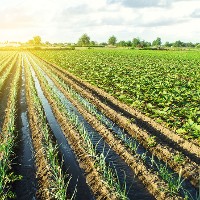fairSTREAM
To support this endeavor IIASA researchers from Equity and Justice (EQU), Water Security (WAT), and Biodiversity, Ecology, and Conservation (BEC) are aligning their expertise in co-designing participatory processes with those in quantitative modelling. To this extent, the researchers will first create a methods toolkit for co-production that explicitly considers procedural and distributional justice. Based on this toolkit we will then design and implement a co-production process, which we will support and upscale by quantifying distributional justice in stakeholder visions for future development of the region. We do so by building a large-scale agent-based model, coupled to a hydrological and biodiversity model, that simulates millions of individual farmers.
Research design
The fairSTREAM project is a methodological meta study reviewing, developing, and integrating soft and hard systems methods for knowledge co-production. Thus, creating novel methodologies is one of the main goals of the project. The main research steps are:
- systematic review of methods for co-producing knowledge, qualitative systems analysis using both literature and retrospective case studies.
- the development of a co-production toolkit comprising systems methods that capture questions of procedural and outcome fairness.
- Application of the toolkit by organizing a living lab in the Bhima basin to co-create qualitative future narratives.
- The co-production of quantitative future scenarios, followed by modelling exercises in a large-scale coupled ABM, with a particular focus on crop farming and integrating biodiversity considerations.


